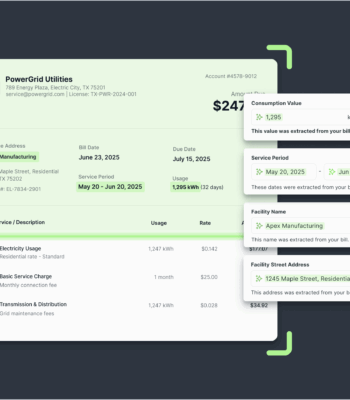This week, the first wave of suppliers have been invited to participate in the Responsible Business Alliance’s Emissions Management Tool, built in partnership with Optera. This tool will streamline supplier emission reporting for RBA members, helping to scale emissions reporting and action across the industry.
We caught up with Daniel Reid, Director of Environment and Circularity at the Responsible Business Alliance (RBA), to hear more about what this launch means for the RBA, its members, and the industry at large.
Tell us a bit about your background and role at the RBA.
Reid: I’ve been at the Responsible Business Alliance (RBA) since 2016, in our environmental sustainability program. In that time we’ve seen many companies’ focus shift from their controlled operations to the impacts beyond their facilities. A reflection of that is the increase in Scope 3 emission accounting, where companies are now not only responsible for their direct and owned operations, but the operations of their suppliers as well.
What prompted the RBA to set up this new tool for its members?
Reid: Our members want to be socially and environmentally responsible, which today means accounting for the environmental impacts of their supply chains as well as their owned operations. Members are always looking for insights into their supply chain performance, and where they can possibly help suppliers to lower their emissions or act in a more environmentally responsible way.
The RBA has always been at the center of helping its members to share insights and proactively engage their supply chains, both from a risk assessment point of view and from the perspective of where the greatest opportunity for improvements might exist. The Emissions Management Tool, which is a combination of the RBA’s data exchange platform along trading relationships and the industry-respected methods of Optera, combine the strengths of both organizations so that RBA members are able to provide deeper tiers of their supply chains with the very best tools available in the industry.
How does this initiative relate to the broader goals of the RBA?
Reid: The RBA is always looking to advance the practices of the industry in their performance to ever increasing environmental and climate expectations. Internally, we have the ability to engage tiers deep within supply chains to communicate their customers’ expectations. But increasingly, we want to provide beneficial services to those companies, often small and medium enterprises, so that they can better engage within the industry and tell their own story through their own data.
Furthermore, with the centralization of emission data, we’re able to tell the collective story of our members, not only their successes in reducing supply chain emissions, but also the challenges and obstacles they face so that we might be able to find partners and opportunities for further reduction.
What did you prioritize when looking for a software partner?
Reid: It was important for the RBA to find a partner that would not only provide services to the leaders of the industry, but to every company regardless of where they are on their climate accounting journey. The platform provided by Optera meets the needs of our members and their suppliers regardless of their maturity and capacity at the time of reporting, so everyone is able to generate a baseline with whatever information they have. It’s the RBA’s mission to improve the capacity and maturity of the industry, and these tools allow our members to interact with the same interface as they grow.
What have you heard so far from your members about this tool?
Reid: Members and their suppliers have been greatly energized by the prospect of the Emissions Management Tool. Many of their suppliers have asked us how they can ensure their customers invite them to participate so they have access, which speaks volumes given that suppliers are often inundated with survey requests and thus usually not anxious to add another. I expect that the Emissions Management Tool will perform well in its inaugural year and prove its worth across the industry for helping companies better account for and understand where they can take action in the climate crises.


